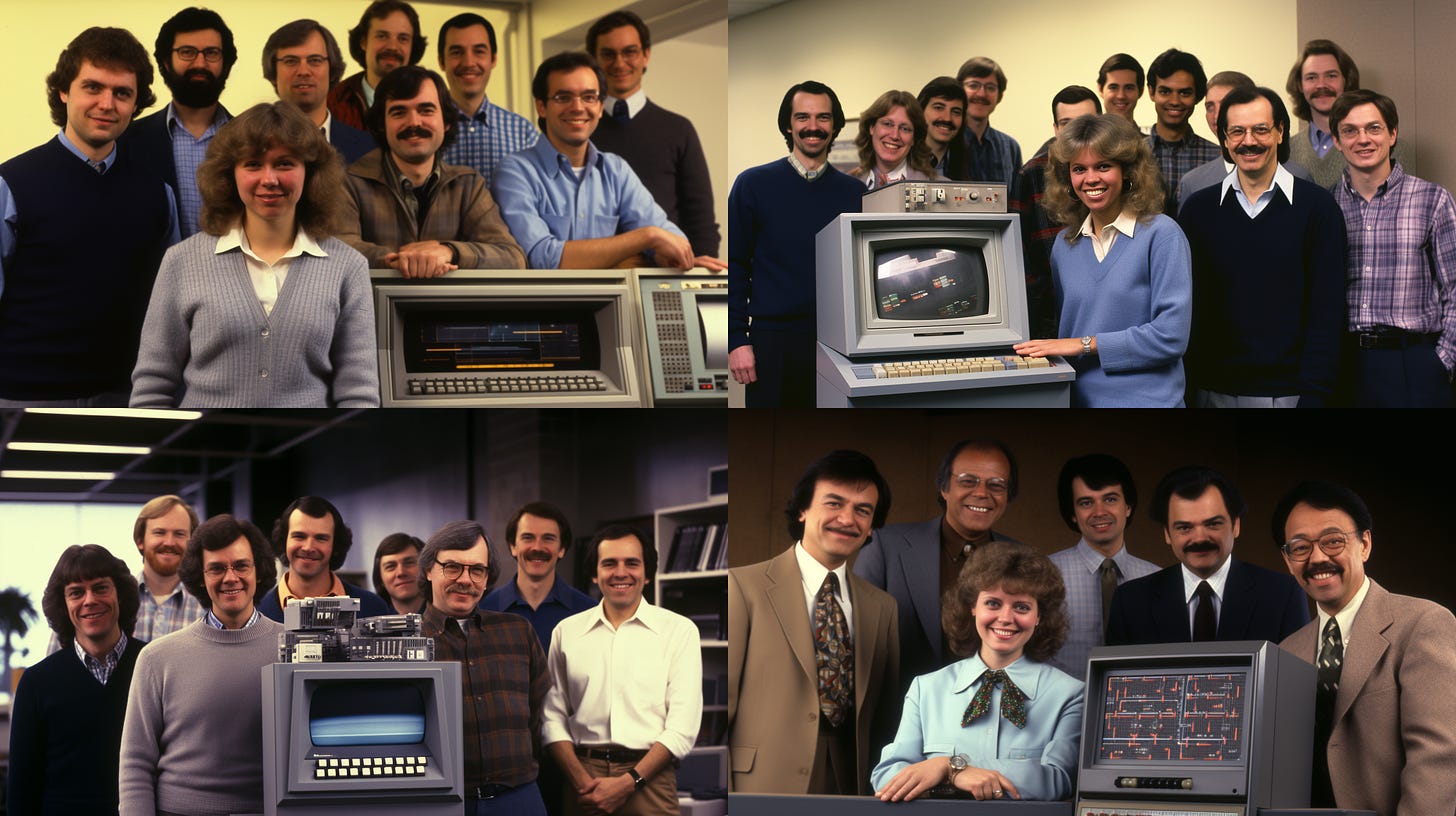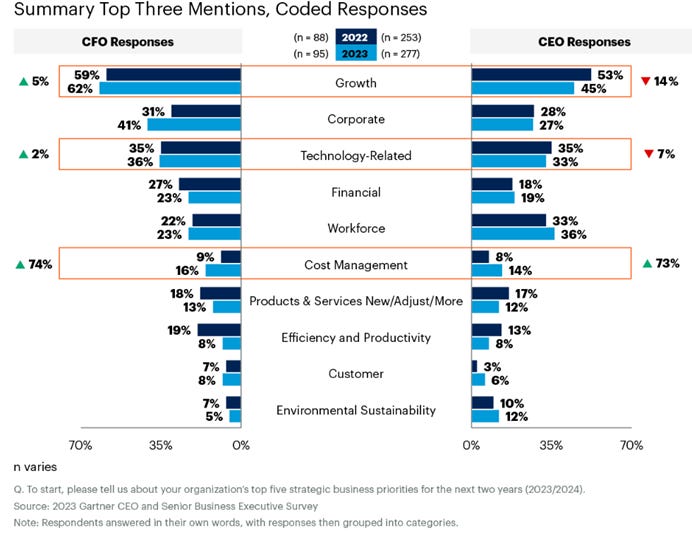Coté
Why is developer experience so bad if we all think software is so important?
This week’s Tanzu Talk podcast (video above) is all about developer experience, and COBOL:
"75% of IT and business executives say that their companies’ ability to compete is directly related to their ability to release quality software quickly" reads a recent Forrester Consulting report. If that’s the case, why are so many developer in large organizations have a bad developer experience? Paul Kelly wrote up the case for good DevEx and what it looks like for developers on the VMware Tanzu blog recently. In this episode, Cora and Coté talk with him about the blog. Paul also wrote two books on Visual COBOL so, naturally, we open up by talking about COBOL. Why did we ever need more?
There were a lot of ideas and topics that we didn’t get to. Enjoy the episode, either as a podcast episode or in the unedited video stream.
“Platform Engineering is one of the hottest topics covered this year by The New Stack, but is it more than just a trendy buzzword? Is it really the killer of DevOps? Or rather, is it the missing piece to help deliver on the promises of DevOps?”
I reviewed a draft of this book and am quoted in it a bit. Jennifer Riggins writes good stuff, and this overview of platform engineering is comprehensive. As you know, dear readers, I’m delightfully flummoxed by what platform engineering is - at the moment, I think it’s just what we used to call “developer tools” with heavy injection of cloud native flavoring. This is fine, really.
You should check it out, it’s free. My work is sponsoring it, sure, but that doesn’t make it bullshit, at all.
Wastebook
“No where is far, everything is here.” Howard Jacobson.
“I ended up taking last Friday off because things happened at a time I wasn’t expecting, and sometimes I’m not good at adapting to that.” Sounds like me.
Relative to your interests
How Infrastructure as Code Helps IT Teams Cope with Employee Churn
Platform Engineering Not Working Out? You're Doing It Wrong, an interview - “Purnima Padmanabhan [head of the business unit I work in] of VMware discusses platform engineering and how it helps create a ‘golden path’ that speeds up not just development but overall agility for businesses.”
Forrester VMware Executive Checklist for DevEx - “75% of IT and business executives say that their companies' ability to compete is directly related to their ability to release quality software quickly.” And, a DevEx definition: “DevEx represents the skills, tools, frameworks, and methodologies aimed at creating, maintaining, and enhancing code throughout the software delivery lifecycle from creation through production and improving developer productivity both individually and collectively.”
When did people stop being drunk all the time? - Historical data suggests that people in the Middle Ages consumed about a liter of beer a day, around four times as much as consumption in modern beer-drinking countries.
tl;dr: Open Source Congress in Geneva; How dangerous is the European far-right?; Tyler Cowen is an Information Monster; The Elon Effect; The Autism Surge: Lies, Conspiracies, and My Own Kids; Delivery Needs a Strategy; How Larry Gagosian Reshaped the Art World; Netherlands residents among most accepting of non-binary people, study shows.
Upcoming
Talks I’ll be giving, places I’ll be, things I’ll be doing, etc.
Sep 6th O’Reilly Infrastructure & Ops Superstream: Kubernetes, online, speaking. Sep 6th to 7th DevOpsDays Des Moines, speaking. Sep 13th, stackconf, Berlin. Sep 14th to 15th SREday, London, speaking (get 50% of registration with the code 50-SRE-DAY) Sep 18th to 19th SHIFT in Zadar, speaking. Oct 3rd Enterprise DevOps Techron, Utrecht, speaking. Nov 6th to 9th VMware Explore in Barcelona, speaking.
Logoff
Let’s see if the “tl;dr” concept works for a header. These are articles that I asked ChatGPT to summarize for me instead of reading the whole thing.
Thanks, again, to my mom being in town to watch the kids (and dog!), Kim and I are going on a weekend trip. This time, it’s back to Paris. I mean, of course, right? Last time we were there I goofed up getting tickets to the Musée d'Orsay, so I damn well booked some this time. I haven’t been there in a long time, and even longer without the, uh, delight of having kids in tow. They love them some Van Gough, you know, and you just can’t peel yourself away from it long enough to see all the other stuff.
If you have any good recommendations for Paris - eating, strolling, museums, site-seeing, zoning out - send them along to me. The only thing I try to do each time is get some steak frites at Le Relais de Venise, above. We’ve been to Paris a lot, but there’s an infinite number of things to do there. What are they?
Forrester VMware Executive Checklist for DevEx - “75% of IT and business executives say that their companies' ability to compete is directly related to their ability to release quality software quickly.” And, a DevEx definition: “DevEx represents the skills, tools, frameworks, and methodologies aimed at creating, maintaining, and enhancing code throughout the software delivery lifecycle from creation through production and improving developer productivity both individually and collectively."
why pair programming improves how large organization develop software, a case study
Pair programming has been around since the late nineties and boasts ample research and anecdotal evidence proving its effectiveness. It’s not limited to programming, either; it can also be valuable in roles such as product management. However, despite its benefits, it remains less commonly practiced than one might expect.
Pair Programming in the Department of Defense (DoD)
A great case study for the value of pair programming comes from the Department of Defense (DoD), the U.S.’s collection of military branches. They face challenges typical of large enterprises that can be mitigated by this technique.
Common Challenges Addressed by Pair Programming
One frequent issue within the military, as in many large enterprises, is a skills gap among programmers. There’s often a need to quickly train new arrivals, who typically do not remain in the same positions for long.
Moreover, software is critical for running operations, and there’s a constant need for innovative solutions and rapid software delivery. Also, organizations require high-quality software—free of bugs, well-designed, and easily extendable—to maintain agility and ensure continuous growth. Pair programming offers solutions for these common challenges.
Advantages of Pair Programming
Pair programming provides an environment conducive to continuous learning. By pairing people up, it fosters knowledge exchange. This is particularly effective when pairs are rotated frequently, a practice perfected over 25 years at VMware Tanzu Labs, formerly Pivotal Labs. Rotation exposes team members to a variety of perspectives, ideas, and techniques, while also facilitating relationship building within the team.
This method also helps address the problem of employee churn. Knowledge about the system is disseminated across the team, fostering generalists rather than specialists. As team members come and go, the collective knowledge base remains intact.
Innovation and Quality through Pair Programming
Pair programming supports innovation, thanks to the diversity of ideas brought by different team members. It breaks the silos typically seen in software development teams, promoting a culture of shared responsibility.
Quality assurance is another area where pair programming shines. Techniques like having one person write unit tests before another writes the actual code ensure thorough testing. Different perspectives brought in by pairs often result in novel ways of testing—and breaking—the code.
Enhancing Satisfaction and Scaling Success
The benefits of pair programming extend beyond technical advantages. Many people at VMware Tanzu Labs have reported a deep sense of satisfaction when moving from solo to pair programming. This positive impact on employee satisfaction can greatly aid in retaining and hiring talent.
Large organizations like the military, banks, insurance companies, and manufacturers can find an added advantage: a built-in way to scale and spread change. By moving successful pair programmers to new teams, you can promote trust in new ways of working and effectively spread this positive change throughout the organization.
More…
Over the past decade, I’ve witnessed the benefits of pair programming and the positive impact of rotating team members across different teams while working at VMware Tanzu Labs. It not only improves code quality and encourages innovation but also helps tackle one of the hardest aspects of software development: adopting new practices and scaling them across the organization.
Pair programming is just as applicable to any large organization as it is to the U.S. military. For a more detailed exploration of how the military has leveraged this technique, you can access an extensive write-up linked here. Additionally, my book, Monolithic Transformation, available for free download, delves into how large organizations can improve their software practices and scale those changes to their full extent.
Pair Programming is a great fit for large organizations because of this one unexpected benefit. CLICK NOW.
I have another video today.
You've heard of pair programming and you probably think it's bonkers. Not many people benefit from this practice. Here, I go over how teams in the US military have been using pair programming to improve how they do software and spread that change to other teams. Some real DIGITAL TRANSFORMATION!
Check out the blog post I based this on, it has a lot more on how other agile practices are helping out programmers in the DoD. And, as I mention, of course, all them free books you can get.
Relative to your interests
Passing the anxiety parcel - “And in organisations there’s a phenomenon I sometimes call anxiety pass the parcel… The higher you are up in the hierarchy, the more likely it is that you are going to be indulged by those below you, in trying to pass on to them your anxiety…. You think you are giving clear and direct leadership, but you’re also in a way, on another level, saying to the people below you here, you, you have my anxiety.”
Chris Elliott’s Friday Night Videos Collection, 1987–88 - This is the kind of thing that I ate a lot of in my media diet as a kid. With decades of perspective, I am intrigued by how this kind of stuff influenced me and my overall style.
Open Source Congress in Geneva - There’s a lot going on in the open source world at the moment, apart from licensing hijinks. Many more real-world things, e.g.: ’With the war raging in Europe, US/China rivalry heating up and AI promising to completely redefining our way of life, it is of little surprise that Open Source communities have increasingly heard alarm bells go off. As an overarching community, we’ve deal with export controls and suddenly being told to exclude contributors to projects. We’ve seen valuable contributors from certain countries excluded simply because of actions their leaders took that they had absolutely no path to influence. Some even fled their country and moved their entire families and lives. We’ve been asked how to handle contributions of AI generated code by hundreds of maintainers. We’ve had to defend and remind people that OSI is the organization that decides what licenses qualify as “open source” (particularly with SDOs). We’ve even had the perpetual “are you dead yet?” argument thrown around. Even if you consider just the regulatory issues facing open source in 2023 - including the CRA, PLD, AI Act (EU), Securing Open Source Software Act (US) and other examples - it is clear that the least various Open Source organizations can do is to educate the lawmakers on the consequences of their [in]actions and then prepare for the inevitable fallout (if they don’t listen). This includes preparing for things that will, if mandated by law, put an additional burden on all of Open Source organizations…' And, Roman goes on to list some.
DevRel Management and Leadership: Guidance, Skill Development, and Book Recommendations.
Banking as a service: The role of banks in powering the fintech industry - It does seem nuts to be a white-label bank, that is, someone else is the front-end and “owns” the customer: ’"As the low-cost provider to somebody else who owns the relationship, you’ve just sold your soul to the devil. … [W]e need to own the customer relationship, and we need to deserve to own the customer relationship through an offering that doesn’t need that fintech platform on the front end."’ // However, this is also the classic setup for disruption. The incumbent can’t go downmarket, follow the new model because it would damage their business, is not profitable compared to other things they could do, and just seems stupid. We’ll see.

Upcoming
Talks I’ll be giving, places I’ll be, things I’ll be doing, etc.
Sep 6th O’Reilly Infrastructure & Ops Superstream: Kubernetes, online, speaking. Sep 6th to 7th DevOpsDays Des Moines, speaking. Sep 13th, stackconf, Berlin. Sep 14th to 15th SREday, London, speaking (get 50% of registration with the code 50-SRE-DAY) Sep 18th to 19th SHIFT in Zadar, speaking. Oct 3rd Enterprise DevOps Techron, Utrecht, speaking. Nov 6th to 9th VMware Explore in Barcelona, speaking.
Logoff
There’ve been some good blog posts on the Tanzu blog recently, but they don’t seem to get many views. So I wanted to see if I could drive some traffic to one of them that I liked.
In the video above, I tried multi-cam editing but by filing one video (on my iPhone) directly into Descript, and another one (with my “real” camera) with QuickTime. Syncing them up in Descript was pretty easy. Detail has a better method for cutting between scenes (a very good, clever method, with key shortcuts, that cuts the video and switches to the other camera at the same time). It’s weird that Descript doesn’t have multi-cam recording, but, whatever.

Passing the anxiety parcel - “And in organisations there’s a phenomenon I sometimes call anxiety pass the parcel… The higher you are up in the hierarchy, the more likely it is that you are going to be indulged by those below you, in trying to pass on to them your anxiety…. You think you are giving clear and direct leadership, but you’re also in a way, on another level, saying to the people below you here, you, you have my anxiety."
Webinars are great - how to make good webinars, and how to watch webinars
Webinars have a bad reputation. They’re usually boring presentation that require you to give over your email address. I do a lot of webinars and watch a lot of them: they don’t all have to be crap! Here’s my take on why webinars are great, how they can go wrong, how to make them interesting, and how to get value from them as an audience member.
Here’s some more marketing stuff from my newsletter. And, here’s the three part webinar series I mentioned if you’re curious.
Developers are bad at estimating in at least three ways.

Software people are bad at estimating
Here are three ways that software people (developers, mostly) are bad at estimating:
Estimating the feasibility of writing code for new features, that is, the risk of failure - if the new feature is difficult to impossible to write, or just doesn’t work altogether. Generally, it’s a lot harder than it seems because of all the things apart from the actual feature. What will the new feature conflict with, will it be compliant? Will the code changes mess something up? How about the new edge cases, exceptions, and error handling you’ll need? And, if you’re shipping in multiple countries, you’ll need to worry about regional differences, requirements, and laws.
How long writing and shipping new features will take. I’d start by tripling any estimate a developer gives - if their estimate was right, you’ll be happy. Of course, if they can demonstrate that they’ve kept their promises over the years, believe developers a little more. But even then, you’re going to be asking them to do new things, take new risks, so they’ll need to re-calibrate their velocity.
The value/impact of new ideas and tech. Developers generally think that new technologies are good and valuable…pretty much simply because they’re new. They’re very influenced by fashion (that’s how us thought leaders keep employed!), and very eager to try new things before they’re tested and proven. Before they’re “boring.” Developers will respond to this passion by wanting to do new things, often just because they’re cool. Sure, they’ll tell you there’s a - if they even use this term! - business reason, but, you know, it’s not like they got a study from Bain on that. Likely, it was just a blog post from someone at Netflix or Spotify. For example, serverless, microservices, kubernetes, etc.
This third is related to “resume driven development,” where developers pick a new technology to use to learn how it works and fancy up their resume. However, it’s not as direct as that: developers are always seeking better tools, methods, and thinking.
These new things may be better, but until they’re proven out, it’s very risky to use them in you’re a large organization. If you already have tools and methods that, basically work, you don’t want to take on the risk of using a potentially GROUND BREAKING new technology that, more than likely, will be less than that, and even slow you down.
In the past few years, many people suffered from this with kubernetes. Their developers said they could build out Kubernetes-based platforms, and many failed. There’s not a lot of conference talks from those people, but when if you’re trying to sell to infrastructure people, you hear those stories a lot.
Webinars are good
(Meta-note: I did this video today to test out Detail some more. I was looking for how quickly I could make a multi-cam video and do the round-trip, idea to publish. Detail still doesn't have non-destructive editing [at least, as far as I can tell you can’t go back to any clip and re-adjust your cuts, you can only got back in the Ctrl-Z undo queue), and I can't zoom the timeline in as much as I'd like. I like adding text to videos [you can see how the text is behind my head in the above thumbnail], but I couldn't figure out how to have the text appear for just a moment, instead for the whole "scene." I usually use Descript [or Lumafusion if I'm feeling "pro-am" or purely on my phone], which I'll stick to. I sure do like the whole vibe and mindset of Detail, though.)
Wastebook
NPC syndrome - I always feel like I’m a character in someone else’s story. I feel bad for them, defer to them, work on what they need. I feel good about that when it goes well, shamed when it doesn’t, and resentful when I don’t get what I want. (I should think of myself more as the main character?)
“Dads don’t say ‘rad.’”
There’s really nothing new to say shout all the Twitter stuff. It just continues to be stupid and driven by a misunderstanding of…real life. Each wave brings some articles trying to analyze it, but the answer is all the same: that dude doesn’t know what he’s doing, and doesn’t know so much that he can’t tell that he doesn’t know. This is something. Also: people who are not “normal” will do weird things given the chance, power/money, and enough years to fart around. This can result in good, abnormal results (getting electric cars, rockets, satellite Internet into the market), but also results in a bunch of bad, abnormal results. Even a broken clock is right twice a day, etc.
Chart Party: CFOs and CEOs Prioritize Growth, While Other Priorities Differ Slightly

Relative to your interests
“My Bluesky experience so far has been mostly terrible…” - “I really don’t like the website interface – it feels like something I might have put together myself. Notifications fail to clear, and the same posts are always just there for some reason. I don’t follow enough people, is no doubt part of the problem.”
Does ‘Buy American’ Policy Make Sense? The Answer Is Key for Your AI Portfolio Too - “The bottom line isn’t that the digital revolution has had no impact on productivity, but that the gains from offices and factories introducing enterprise software and smartphones have mostly accrued to the makers of enterprise software and smartphones. American corporations rule the world because they make tech, not because they use it better.”
AlmaLinux discovers working with Red Hat isn’t easy - Some follow-up, “how it’s going” meme-style stuff from the RHEL open source drama.
Men are lost. Here’s a map out of the wilderness. - ‘Then there’s the point-by-point advice. If young men are looking for direction, these influencers give them a clear script to follow — hours of video, thousands of book pages, a torrent of social media posts — in a moment when uncertainty abounds. The rules aren’t particularly unique: Get fit, pick up a skill, talk to women instead of watching porn all day. But if instruction is lacking elsewhere, even basic tips (“Clean your room!” Peterson famously advises) feel like a revelation. Plus, the community that comes with joining a fandom can feel like a buffer against an increasingly atomized world.’ // Also, towards the end, the most action packed description of a Zoom call you’ll ever read. // Possible good traits: “Physical strength came up frequently, as did a desire for personal mastery. They cited adventurousness, leadership, problem-solving, dignity and sexual drive. None of these are negative traits, but many men I spoke with felt that these archetypes were unfairly stigmatized: Men were too assertive, too boisterous, too horny.”
The DoD: A Compelling Case for Extreme Programming - Good overview of why/how the practices in Extreme Programming (XP) help the needs of the military, and fit the constraints and challenges they have. For example, spreading knowledge with paired programming manages high turn over in staff.
Free Lunch - Some strong Amsterdam type vibes here. // “Free Lunch is an all-caps display font that would look comfortable in a butcher shop window. Or a lunch counter menu in 1955. Or printed on the waxed paper that wraps a half-pound of Swiss cheese from your neighborhood deli. A little playful, great for headlines and logos.”
Workin’ for the Man - This is how most all request driven processes (you have to file a ticket) end up being gamed by users: “So I think the winning technique is simply to flood their input queue with issues and eventually one will find a chink in the armour and reach an intelligent human being who Just Fixes It.”
Nobody cares about your blog. - The post is pro-blogging, obviously. We should try to bring back blogging (or blogs masquerading as newsletters, whatever). With the collapse of Twitter, there’s lots of text based people who need an outlet.
Oracle’s revised Java licensing terms 2–5x more expensive - ’a hypothetical organization with 49,500 employees, all of whom are applicable for the “Named User Plus” (NUP) license as per the legacy subscription model. That organization is also running Oracle JDK on 5,000 processors, and as such would pay $742,500 for NUP licenses and $900,000 for processor licenses under the legacy deal. The new Universal Subscription model would cost it about $3,118,500, a 90 percent increase in price.’
Why they’re smearing Lina Khan - Outcomes based regulation: “There is no measure so small that the corporate world won’t have a conniption over it. Take click to cancel, the FTC’s perfectly reasonable proposal that if you sign up for a recurring payment subscription with a single click, you should be able to cancel it with a single click. The tooth-gnashing and garment-rending and scenery-chewing over this is wild. America’s biggest companies have wheeled out their biggest guns, claiming that if they make it too easy to unsubscribe, they will lose money. In other words, they are currently making money not because people want their products, but because it’s too hard to stop paying for them!”
Upcoming
Talks I’ll be giving, places I’ll be, things I’ll be doing, etc.
Sep 6th O’Reilly Infrastructure & Ops Superstream: Kubernetes, online, speaking. Sep 6th to 7th DevOpsDays Des Moines, speaking. Sep 13th, stackconf, Berlin. Sep 14th to 15th SREday, London, speaking (get 50% of registration with the code 50-SRE-DAY) Sep 18th to 19th SHIFT in Zadar, speaking. Oct 3rd Enterprise DevOps Techron, Utrecht, speaking. Nov 6th to 9th VMware Explore in Barcelona, speaking.
Logoff
After reading an IDC report on Dell acquiring Moogsoft, I wrote a long piece with advice on hardware companies acquiring software companies. Also, a list of other types of acquisitions. I did this kind of work at a previous job (Dell of all places!), so I feel I have some first hand experience. However, since the place I’m working at is in the process of being acquired, it seemed like a bad idea to publish it. Maybe one day! Here’s an older (2016) piece on the topic - it’s not too great. The thing on estimating is from that longer piece.
Why they’re smearing Lina Khan - Outcomes based regulation: “There is no measure so small that the corporate world won’t have a conniption over it. Take click to cancel, the FTC’s perfectly reasonable proposal that if you sign up for a recurring payment subscription with a single click, you should be able to cancel it with a single click. The tooth-gnashing and garment-rending and scenery-chewing over this is wild. America’s biggest companies have wheeled out their biggest guns, claiming that if they make it too easy to unsubscribe, they will lose money. In other words, they are currently making money not because people want their products, but because it’s too hard to stop paying for them!"
Oracle’s revised Java licensing terms 2-5x more expensive • The Register - ’a hypothetical organization with 49,500 employees, all of whom are applicable for the “Named User Plus” (NUP) license as per the legacy subscription model. That organization is also running Oracle JDK on 5,000 processors, and as such would pay $742,500 for NUP licenses and $900,000 for processor licenses under the legacy deal. The new Universal Subscription model would cost it about $3,118,500, a 90 percent increase in price.’
AlmaLinux discovers working with Red Hat isn’t easy - Some follow-up, “how it’s going” meme-style stuff from the RHEL open source drama.





